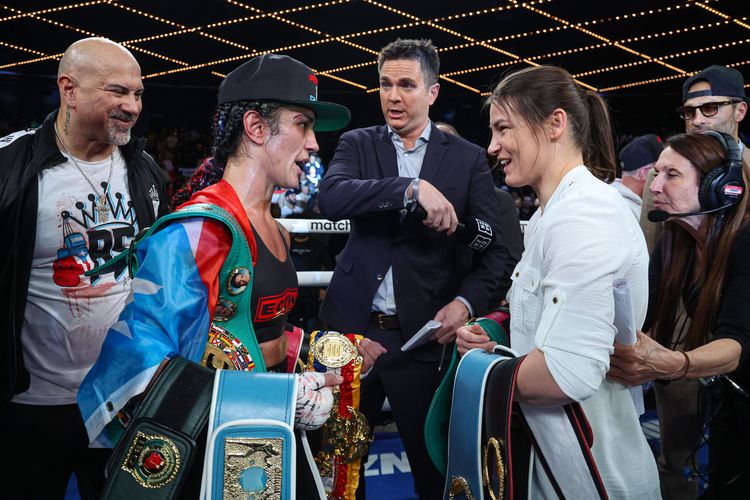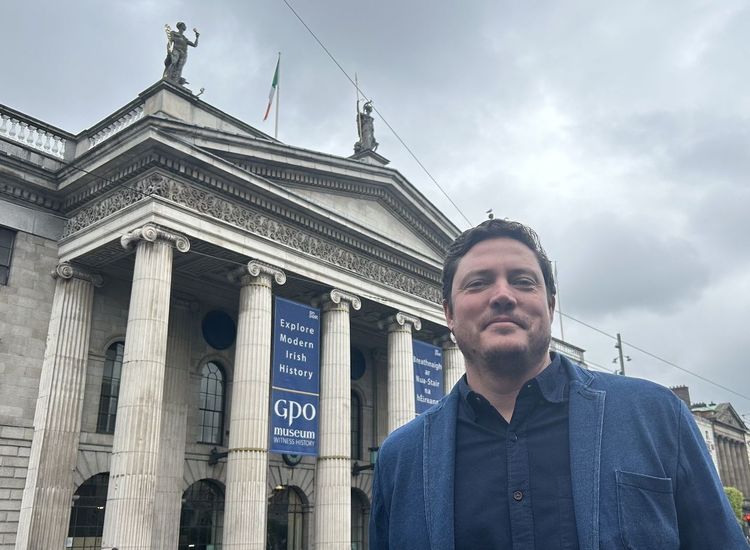By Christine Breen
letters@irishecho.com
Everybody’s life is a story.
Mine begins in New York but ends up in the West of Ireland in a place called Kiltumper, County Clare, named for a chieftain who is buried on the hilltop.
Being an Irish American was not an integral part of my identity as a child.
I was too busy being a kid in Westchester County with five younger siblings.
It wasn’t until I went to Ireland for the first time with my father and my grandmother, Kitty McTigue, that something in me was triggered, some Irish feeling.
It’s somewhat indefinable in words. Imagine a sweet scent that you follow even though you can’t name it. It’s like honeysuckle and mown-hay and turf smoke and wet, freshly dug earth.
My father’s parents were from County Clare, although they first met at a dance in New York City.
They’d left Ireland in their teens, in the 1910s, and lived the rest of their lives in Elmhurst.
Kitty was a beauty in her youth but what I remember about her was her tea-breath and fruit cake and black rosary beads twined around her freckled hands.
She sang Irish songs and taught me how to jig. My grandfather was a career soldier and survived WWI.
By the time I knew him Pop-Pop stayed mostly in the basement, smoking and reading newspapers. Sometimes we’d walk to the railroad tracks together. I don’t remember him speaking to me of Ireland but perhaps it was something in the way he held my hand that connected me to his birthplace.
The Irish feeling stayed with me. I took my junior year in college abroad in Dublin, studying with great Irish writers like Ben Kiely and Evan Boland and Mary Lavin.
Dublin of the mid ‘70s was a kind of magical place to an American college student. It was as oldie-worldy a place as I’d ever seen. Coal smoke on dark nights. The scent of the sea at Sandymount. Guinness. Irish music.
But after that green wonder year I came back to the U.S., graduated and worked in publishing in Boston and then New York City.
But being of a rather melancholic nature, probably a bit like my grandfather, I wasn’t happy working in the city and that Irish feeling was deep in me. I quit my job and enrolled in the University College, Dublin for a master’s degree in Anglo-Irish Literature.
There are things you do in life that you can’t quite explain. It’s like a whisper that speaks to an unconscious part of you. In UCD I met my Dublin-born husband, Niall Williams.
We met over his plate of chips and my yogurt and apple in UCD’s café. We fell in love, got our degrees, moved to New York, got married, and worked in New York City.
But within five years we knew we weren’t cut out for the life we were living. We wanted to write and to live a more creative life, and we wanted to start a family.
In 1985 we moved lock stock and barrel to an empty, stark-white, two-hundred-year old cottage — the one my grandfather Breen had left in 1910 — with my father’s blessings. (He had bought the cottage and its 60 acres a few years earlier).
Thirty years ago, on April 1st, we travelled west along the boreen that brings you into the townland of Kiltumper, and here we settled into our cottage, with no furniture and some long resident jackdaws in the chimney.
Since then we’ve written four non-fiction books about living in the West of Ireland, making a life from scratch in a 200 year old stone-walled cottage with a south facing, then neglected, garden.
The first, “O Come Ye Back to Ireland,” sold widely in the U.S. and recounted our challenges and struggles as we learned how to rear cows and calves, sow potatoes, cut turf, and survive the rain.
The second one, “When Summer’s in the Meadow,” continued our tales of Irish country living but with the added storyline of adopting our first child. She arrived as a 9-week-old gorgeous baby with blueberry-grey eyes at the end of June, 1987.
Our second child, a boy, also with beautiful blue eyes, arrived in June, 1991. We had a family, a home, a garden and were living on our wits and talent. It was for me as organic as life could be. And except for the rain, we all thrived. (The rain is a constant companion and I’ve yet to befriend it. But there is still time).
Curiously, as I return to New York for the publication of my debut novel, “Her Name is Rose,” I realize I am truly half Irish and half American, having lived an equal amount of time in both countries.
And I can say that Niall and I have achieved what we had set out to do, something that was not always easy, to live a creative life and rear a family in the West of Ireland.
He’s written stage plays and novels. (His most recent long-listed for the 2014 Man Booker Prize.) I trained as a homeopath, co-founded an artists’ co-op where I sold my paintings, became a gardener, wrote a travel memoir, and reared my children.
Our life is centered here, in this cottage where my grandfather was born, with its 12-foot wide, open hearth inside and its large south-facing garden outside.
The children attended a two-room schoolhouse with only six others in their class. During break times when the wind blew from the Northeast I could hear them in the schoolyard across the fields.
And now, with my daughter working for a high-end fashion company in New York, and my son finishing a master’s degree in law in London, it’s clear that the rural Irish upbringing they had has helped them flourish.
Ireland has been right for me. It’s been good for me. It has given me everything in a way, and in a way it adopted me.
From the moment our daughter came into our lives I knew I was always meant to be in Kiltumper. That’s how she found me. That’s how my son found me. That’s how this story went. They wouldn’t have found me in New York.
Being an adoptive mother is central to who I am. So when I finally got around to writing that novel I always dreamed of, the inspiration was quite simply: a mother’s love for her child and what she would do if anything unforeseen were to happen.
In “Her Name is Rose,” Iris Bowen, a gardener and a widow, is also an adoptive mother. When she gets a health scare, she honors the promise she made to her husband before he died: to find their daughter’s birth mother.
It’s a journey that takes her from the West of Ireland to Boston and back with unexpected results.
It is a story of facing your fears, of fate and luck, of mothers and daughters, and the invisible ties that bind two countries looking at each other across the Atlantic.
It is, naturally, a love story. An Irish-American love story.
As mine has been.
On Wednesday, April 22 at 7 p.m., Christine Breen will be reading from and discussing “Her Name is Rose” at Barnes & Noble on 82nd & Broadway in Manhattan. She will be joined by two very special musical guests, her sister in law, Carlene Carter, and Joseph Breen. All are welcome to attend. “Her Name is Rose” is published by St. Martin’s Press.











